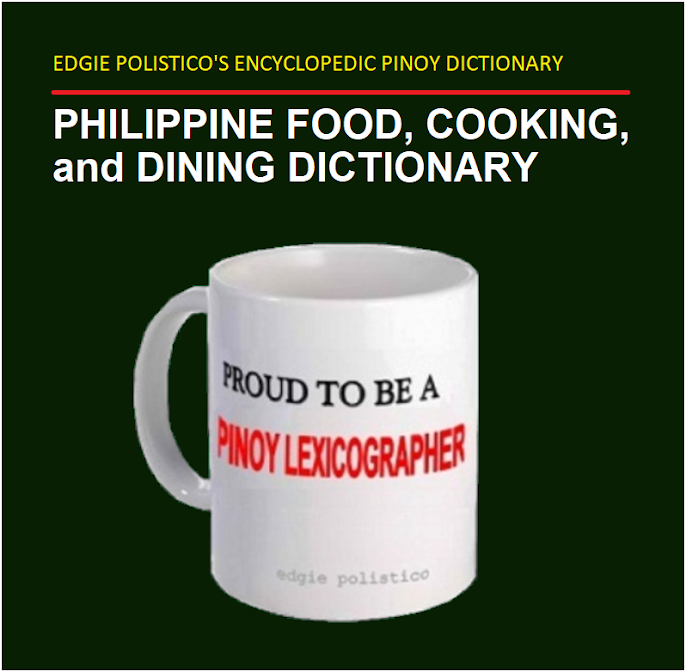.jpg)
daral – /da-rál/ Ta’u-sug snack) [n.] Tausug crêpe; rice crêpe rolled with coconut sweetmeat filling.
Other local names:
- sulabai or dadal in Maguindanaon
- dadal in Iranun
- balolon or dadal in Maranao
Daral is a traditional Tausug rice crêpe. It is made with rice flour and filled with hinti and rolled into cylindrical form like a small log. Hinti is a coconut sweetmeat similar to Tagalog bukayo but soft, moist, and loose.
Preparation starts with the grinding of hulled rice grains (not glutinous) into rice flour. The flour is then mixed gradually with enough amount of water to produce a rice batter. Traditionally, the batter is unsweetened, though sugar or any other sweetener may be added if desired.
A ladle scoop of the batter is poured into a pre-heated pan brushed with oil, and let spread flat and round until it solidifies into a crêpe. The crêpe is done when it holds its shape when the underside is budged and pried. It would look like a fresh lumpia wrapper (spring roll crêpe).
When the bottom side is cooked, the crepe is topped with a spoonful of hinti (grated coconut sweetmeat similar to Tagalog bukayo). The opposite edges of daral are then folded and the crepe is rolled into a small log and would look like a rolled hot face towel with those tiny surface holes on the outer side.
Daral is traditionally served as a snack.
Originally, the crepe is made purely with ground rice, but later on, it is mixed or replaced with flour making the crepe look like closer to a pancake.
.jpg)
.jpg)
A daral in a food stall of Pagadian City public market, made with pure ground rice (rice flour).
.jpg)
|
.jpg)
.jpg)
Daral on display on a roadside food stall in Maharlika Village in Taguig City, made with ground rice mixed with all-purpose flour.
|
If you liked this post and our site, share it.
Let us know your opinion on the subject. Feel free to comment in the comment section, below. It is important for us to know what you think.
Tell us what other topics you would like us to write, share, and discuss about.
All photos by Edgie Polistico are copyrighted. ALL RIGHTS RESERVED.
Thank you for all the encouragement and enthusiasm. I need also moral support, prayers, and what else that can uplift my spirit and keep my good reasons.
If you are pleased or happy with this blog, please share the PHILIPPINE FOOD ILLUSTRATED. It is energizing that my blog is shared with others.
Edgie Polistico
Continue to follow my blogs. You can also follow and learn more by joining us in our Facebook group. Have more bits and pieces about our kind of food, ingredients, and ways of cooking, dining, and knowing food culture across the 7,641 islands of the Philippines. I will search for more and continue to share my finds. It is my pleasure rediscovering the known and least known things or the unheard ones and putting them here for every one to find, learn, and treasure.
Encouragement and enthusiasm is not enough. I also need moral support, prayers, and what else that can uplift my spirit and keep my good reasons. Keep them coming. All I know is that I am happy of what I am sharing and giving away. If you are pleased and happy of what I am doing, just smile and please share the happiness. Keep sharing and include to share the PHILIPPINE FOOD ILLUSTRATED. I feel energized when my blog becomes one of the reasons why you are happy and smiling.
Edgie Polistico




.jpg)

.jpg)
.jpg)
.jpg)
.jpg)
.jpg)
.jpg)






